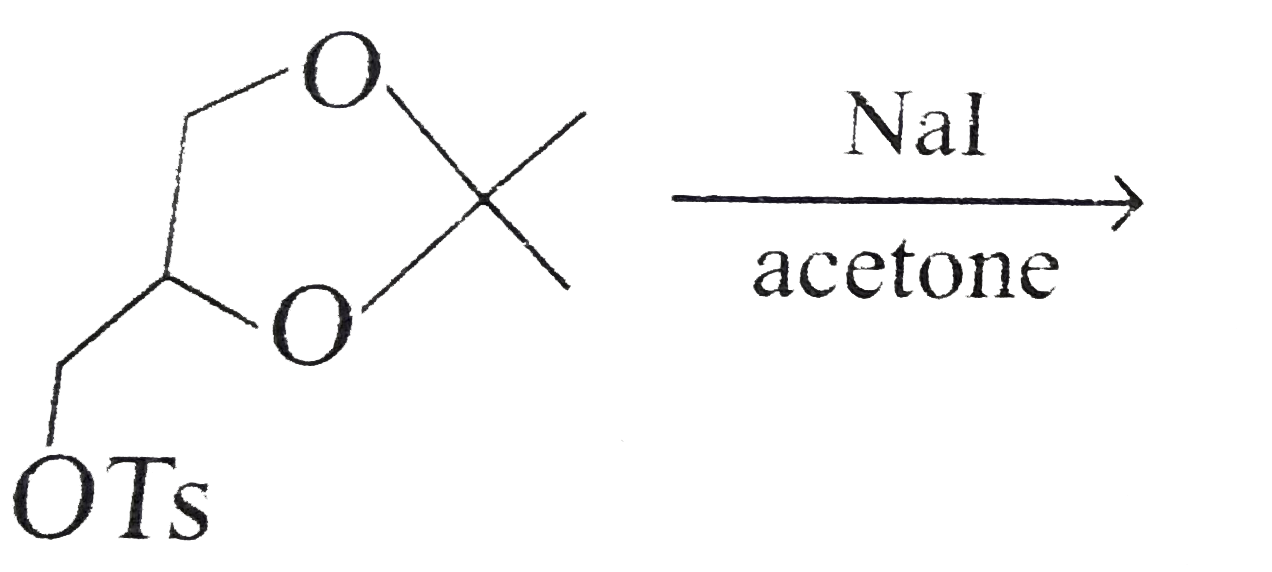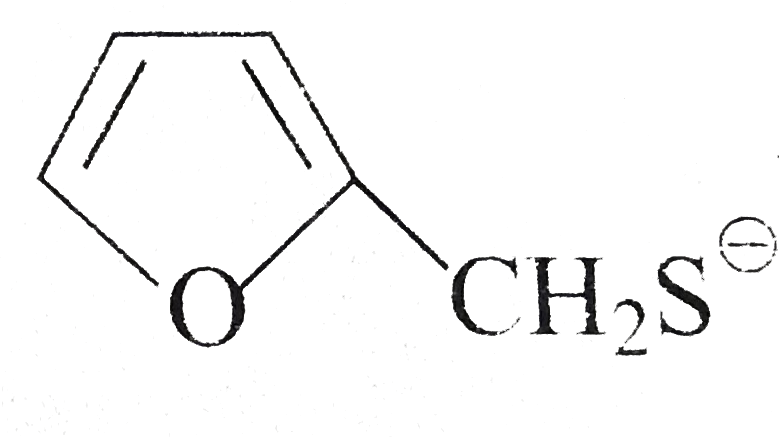Which of the following reactions cannot proceed by SN1 mechaism ?




The correct Answer is:d
To determine which of the given reactions cannot proceed by the SN1 mechanism, we need to analyze the stability of the carbocations formed in each reaction. The SN1 mechanism involves the formation of a carbocation intermediate, and the stability of this carbocation is crucial for the reaction to proceed.
1. Understand the SN1 Mechanism:
- The SN1 mechanism involves two steps:
1. Formation of a carbocation by the departure of a leaving group (like Cl).
2. Nucleophilic attack on the carbocation.
- The stability of the carbocation is key; more stable carbocations favor SN1 reactions.
2. Identify the Stability of Carbocations:
- Carbocations can be classified based on their degree:
- Tertiary (3°): Most stable due to hyperconjugation and inductive effects.
- Secondary (2°): Moderately stable.
- Primary (1°): Least stable and often does not form via SN1.
- Methyl: Very unstable, does not form via SN1.
3. Analyze Each Option:
- Option A: Forms a carbocation that is stabilized by resonance from a ring structure. This reaction can proceed via SN1.
- Option B: Forms a tertiary carbocation upon the departure of Cl. This reaction can proceed via SN1.
- Option C: Forms a secondary carbocation upon the departure of Cl. This reaction can also proceed via SN1.
- Option D: Forms a primary carbocation upon the departure of Cl. Primary carbocations are very unstable and do not favor SN1; they typically undergo SN2 reactions instead.
4. Conclusion:
- The reaction that cannot proceed by SN1 mechanism is the one that forms a primary carbocation, which is found in Option D.
Final Answer:
Option D cannot proceed by SN1 mechanism.
- The SN1 mechanism involves two steps:
1. Formation of a carbocation by the departure of a leaving group (like Cl).
2. Nucleophilic attack on the carbocation.
- The stability of the carbocation is key; more stable carbocations favor SN1 reactions.
- Carbocations can be classified based on their degree:
- Tertiary (3°): Most stable due to hyperconjugation and inductive effects.
- Secondary (2°): Moderately stable.
- Primary (1°): Least stable and often does not form via SN1.
- Methyl: Very unstable, does not form via SN1.
- Option A: Forms a carbocation that is stabilized by resonance from a ring structure. This reaction can proceed via SN1.
- Option B: Forms a tertiary carbocation upon the departure of Cl. This reaction can proceed via SN1.
- Option C: Forms a secondary carbocation upon the departure of Cl. This reaction can also proceed via SN1.
- Option D: Forms a primary carbocation upon the departure of Cl. Primary carbocations are very unstable and do not favor SN1; they typically undergo SN2 reactions instead.
- The reaction that cannot proceed by SN1 mechanism is the one that forms a primary carbocation, which is found in Option D.
Option D cannot proceed by SN1 mechanism.
Topper's Solved these Questions
- BOOK - DISHA PUBLICATIONCHAPTER - ORGANIC CHEMISTRY SOME BASIC PRINCIPLES AND TECHNIQUES EXERCISE - Exercise - 2 : Concept Applicator30videos
ORGANIC CHEMISTRY SOME BASIC PRINCIPLES AND TECHNIQUES
- BOOK - DISHA PUBLICATIONCHAPTER - ORGANIC CHEMISTRY SOME BASIC PRINCIPLES AND TECHNIQUES EXERCISE - Exercise - 1 : Concept Builder (Topicwise) TOPIC 2 : isomerism in Organic Compounds )17videos
ORGANIC CHEMISTRY SOME BASIC PRINCIPLES AND TECHNIQUES
- BOOK - DISHA PUBLICATIONCHAPTER - JEE MAIN 2019EXERCISE - MCQs30videos
JEE MAIN 2019
- BOOK - DISHA PUBLICATIONCHAPTER - POLYMERS EXERCISE - EXERCISE -2 : CONCEPT APPLICATOR30videos
POLYMERS
Similar Questions
Knowledge Check
- Question 1 - Select One or More
Which of the following reactions take place by SN2 reaction?
A B
B C
C D
D
- Question 2 - Select One
Which of the following reactions proceed at low pressure?
AN2+3H2⇔2NH3BH2+I2⇔2HICPCl5⇔PCl3+Cl2DN2+O2⇔2NO - Question 3 - Select One
Which of the following reactions proceed at low pressure?
AN2(g)+3H2(g)⇔2NH3(g)BH2(g)+I2(g)⇔2HI(g)CPCl5(g)⇔PCl3(g)+ClgDN2(g)+O2(g)⇔2NO(g)
Which of the following reactions is an example of SN2 reaction?
View Solution
Which of the following products can be obtained by SN1 reaction?View SolutionWhich of the following reaction will not proceed via carbanion intermediate ?
View SolutionThe following reaction proceeds by which mechanism ?
 View Solution
View SolutionThe following reaction proceeds by which mechanism ?
 View Solution
View Solution

